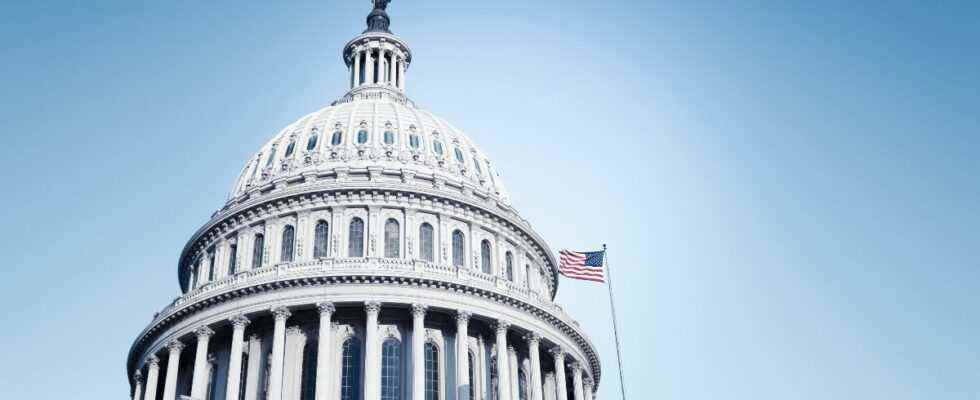4
The American tech giants are worried about the consequences that the American Innovation and Choice Online Act, a text dedicated to countering the anti-competitive practices of Gafam, could have. Lobbying is in full swing in Washington.
Brussels gives ideas to Washington and that really does not please the American tech giants. At the end of March, the EU Member States, the Commission and the European Parliament reached a final agreement on the Digital Markets Act (DMA), a text which aims to combat the abuse of a dominant position by digital giants. An innovative legislation that the American Congress wishes to imitate with the American Innovation and Choice Online Act.
This text, which also aims to counter the anti-competitive practices of Gafam, was validated by the Judiciary Committee of the American Senate last January before being supported by the Biden administration. In this context, the passage of this ambitious bipartisan bill is becoming more and more likely and is shaking American tech giants, in Silicon Valley and beyond.
The American Innovation and Choice Online Act, the text that worries the Gafam
And for good reason, this new legislation must prevent Google, Amazon and others from promoting their own products and services on their platforms to the detriment of the competition. This text must apply to companies whose market capitalization exceeds 550 billion dollars and which have more than 50 million monthly active users, which is obviously not a coincidence.
At the beginning of the year, Apple and Google had also stepped up to denounce the American Innovation and Choice Online Act, as well as the Open App Markets Act, a bill which aims to promote competition on online app stores. According to Apple, these two texts could harm the protection of privacy and the security of personal devices of Americans, while Google flatly believes that this could prevent it from offering the “best” services to consumers. And for good reason, the Californian firm would no longer be able to systematically highlight the services of its ecosystem, which would lead consumers to be influenced by other applications which, according to Google, are not as good as its own. .
At least $36.4 million in ads since January 1, 2021
Aware of the danger awaiting them, the behemoths of American tech are showing the muscles to defeat this antitrust law. Indeed, Gafam-funded pressure groups have spent at least $36.4 million on ads (TV and Internet) since January 1, 2021 against the American Innovation and Choice Online Act, according to the wall street journal. A disproportionate envelope compared to the nearly 193,000 dollars spent by the groups that support the text.
Much of BigTech’s spending, $13.7 million, or nearly 40% of the total sum, has come since May 1, while a vote on that bill could take place as early as this summer. . These colossal sums mobilized by the Gafam are part of the most important advertising campaigns carried out by the technology industry in recent years, which reflects the fear of a strong impact of such an antitrust law on their activity.
We have momentum despite all the money spent against us.
“This is undoubtedly one of the most important campaigns the association has launched in recent years, as it is one of the most radical policy proposals to regulate a cutting-edge sector of the industry. ‘American economy’, estimated Matt Schruers, president of the Computer and Communications Industry Association (CCIA), which spent more than $23 million, the most significant share among all the groups engaged in this campaign. While this organization has not revealed the identities of the companies that funded its advertising campaign, the CCIA lists Google, Amazon, Apple and Meta among its members.
In these ads, lobby groups try to convince voters that relaxing antitrust standards could contribute to inflation, weaken America’s power against China, and hurt consumers and small businesses by impacting popular online services like Amazon Prime or Google Maps. “We’re up against these big tech companies spending tens of millions of dollars on ads and also front groups to spread lies about our bill.”said Republican Senator Chuck Grassley. “Obviously they want to protect the status quo, which allows them to expand their influence”, he added. Despite the Gafam rebellion, Democratic Senator Amy Klobuchar is optimistic for the adoption of this bill. “We have momentum despite all the money spent against us”estimated the elected American, who chairs the antitrust subcommittee of the Senate.
